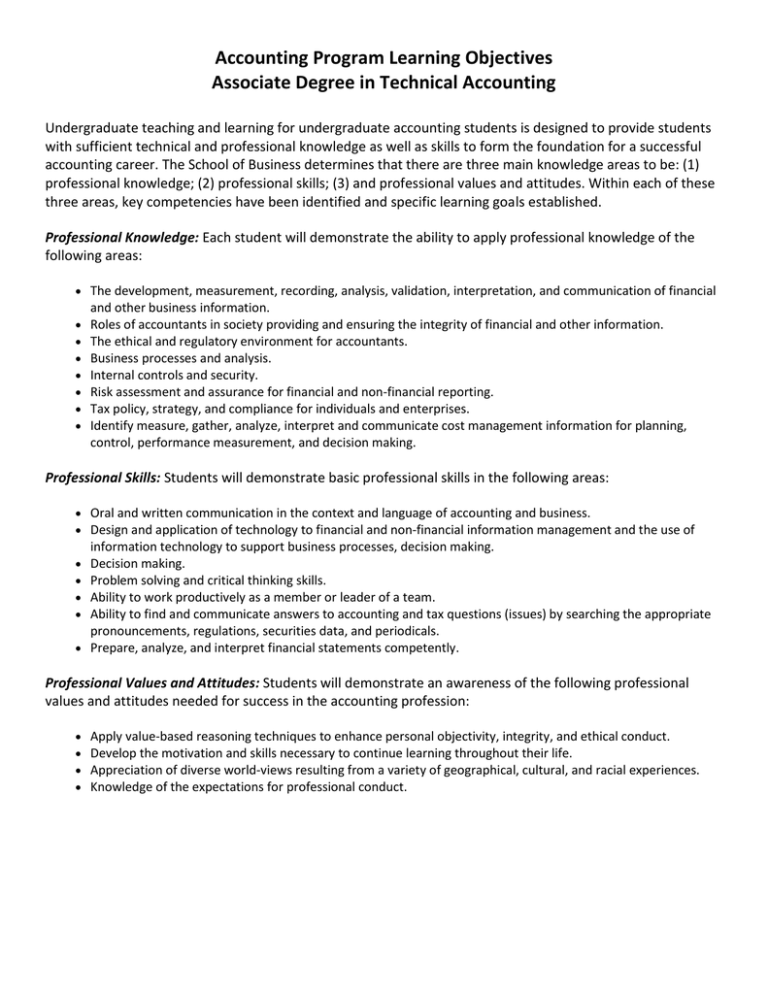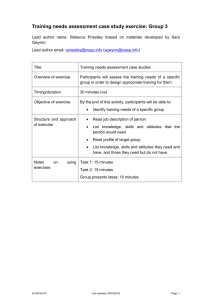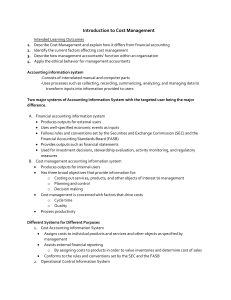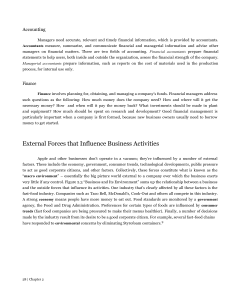Accounting Program Learning Objectives Associate Degree in Technical Accounting
advertisement

Accounting Program Learning Objectives Associate Degree in Technical Accounting Undergraduate teaching and learning for undergraduate accounting students is designed to provide students with sufficient technical and professional knowledge as well as skills to form the foundation for a successful accounting career. The School of Business determines that there are three main knowledge areas to be: (1) professional knowledge; (2) professional skills; (3) and professional values and attitudes. Within each of these three areas, key competencies have been identified and specific learning goals established. Professional Knowledge: Each student will demonstrate the ability to apply professional knowledge of the following areas: The development, measurement, recording, analysis, validation, interpretation, and communication of financial and other business information. Roles of accountants in society providing and ensuring the integrity of financial and other information. The ethical and regulatory environment for accountants. Business processes and analysis. Internal controls and security. Risk assessment and assurance for financial and non-financial reporting. Tax policy, strategy, and compliance for individuals and enterprises. Identify measure, gather, analyze, interpret and communicate cost management information for planning, control, performance measurement, and decision making. Professional Skills: Students will demonstrate basic professional skills in the following areas: Oral and written communication in the context and language of accounting and business. Design and application of technology to financial and non-financial information management and the use of information technology to support business processes, decision making. Decision making. Problem solving and critical thinking skills. Ability to work productively as a member or leader of a team. Ability to find and communicate answers to accounting and tax questions (issues) by searching the appropriate pronouncements, regulations, securities data, and periodicals. Prepare, analyze, and interpret financial statements competently. Professional Values and Attitudes: Students will demonstrate an awareness of the following professional values and attitudes needed for success in the accounting profession: Apply value-based reasoning techniques to enhance personal objectivity, integrity, and ethical conduct. Develop the motivation and skills necessary to continue learning throughout their life. Appreciation of diverse world-views resulting from a variety of geographical, cultural, and racial experiences. Knowledge of the expectations for professional conduct.






